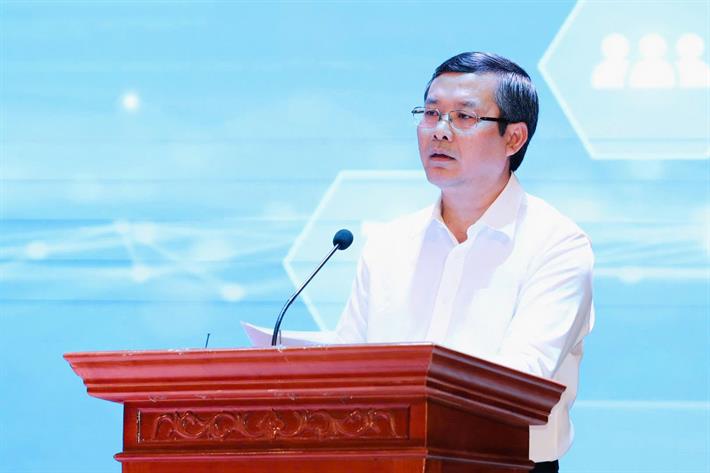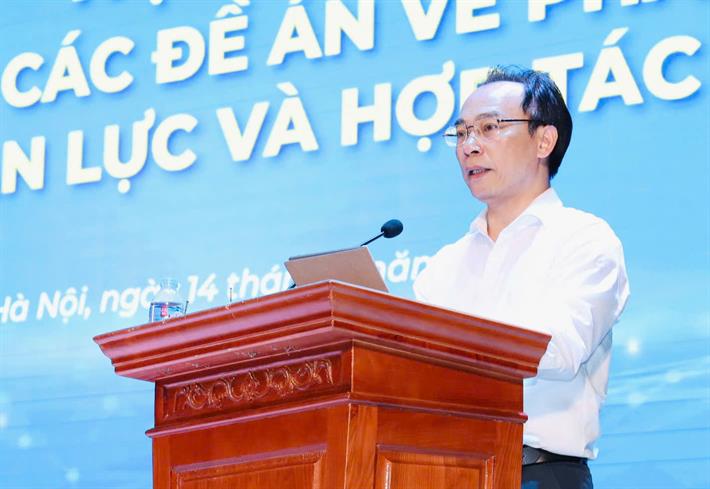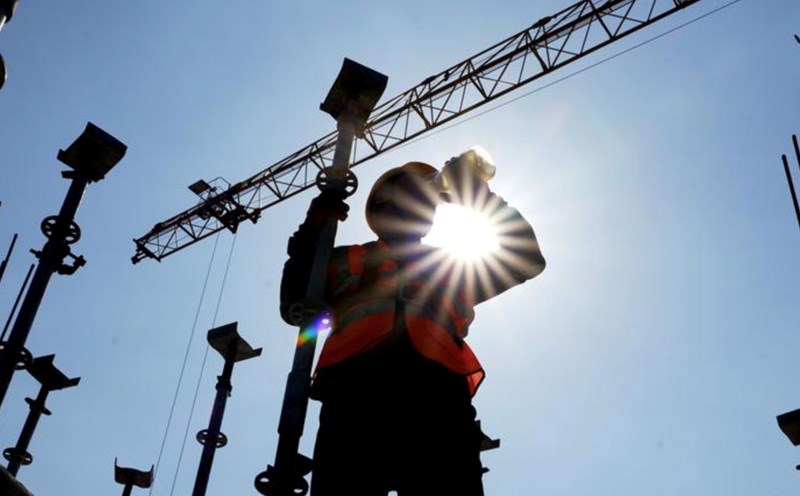On the morning of June 14, the Ministry of Education and Training held a Conference to deploy Projects on human resource development and "3 Houses" cooperation: State - Schools - Enterprises.
Speaking at the opening of the conference, Deputy Minister of Education and Training Nguyen Van Phuc said that the "3 Houses" model will promote the strength of synthesizing, mobilizing and effectively exploiting resources, closely linking training and scientific research with the labor market and the economy, best meeting high-quality human resources, developing science and technology and improving national competitiveness.

This is also a prerequisite for Vietnam to build interdisciplinary innovation centers, industrial - academic linkage clusters, gradually forming a national innovation ecosystem.
Associate Professor, Dr. Pham Bao Son, Deputy Director of Hanoi National University, affirmed that the "3 Houses" model not only promotes training close to market demand, but also unleashes non-budgetary investment in scientific research and technology development (R&D).
Hanoi National University alone has implemented more than 50 projects with international enterprises and partners in the first 6 months of 2025, many of which have been funded with tens of billions of VND.
However, experts believe that the biggest obstacle today is not the idea, but the mechanism. Schools are still "bottlenecked" by administrative procedures, rigid financial norms and unclear intellectual property regulations.
Therefore, the representative of Hanoi University of Science and Technology proposed to shift from " supplying" to "commissioning goods": Enterprises issuing papers, main sponsors; universities providing technology solutions as a professional "R&D contractor", with output commitments.

Concluding the conference, Deputy Minister of Education and Training Hoang Minh Son emphasized the urgent need to change the thinking of developing higher education, in the context of the country promoting digital transformation, developing science and technology and innovation.
It is time for higher education institutions to strongly innovate strategic thinking and action, shifting from quantity to quality, especially towards quality. Enhance the role and position of higher education institutions in research and innovation activities - the Deputy Minister requested.
The Deputy Minister affirmed that universities are not only places of training, but also the core force in research and innovation. Without a team of high-quality human resources, it is impossible to develop science and technology in a breakthrough way. Therefore, educational institutions need to redefine their mission, taking training combined with research and innovation as a consistent orientation.
Currently, there are over 300 university training units nationwide with about 2.4 million students. However, the rate of postgraduate training is still low, especially in the STEM field. The number of schools is large, but the number with real capacity for science, technology and high-quality training is still limited" - the Deputy Minister assessed.
To enhance the status of Vietnamese universities, the Deputy Minister pointed out that it is necessary to act faster, more urgently, more drastically and more actively.
"If the approved planning projects do not become very specific actions and are implemented quickly and strongly, we will lose opportunities," the Deputy Minister requested.
To effectively implement, the Deputy Minister proposed 5 tasks, including the proposal to build a National Council on universities - enterprises, closely connecting schools and enterprises in human resource training, research and innovation, contributing to solving the country's major problems.











